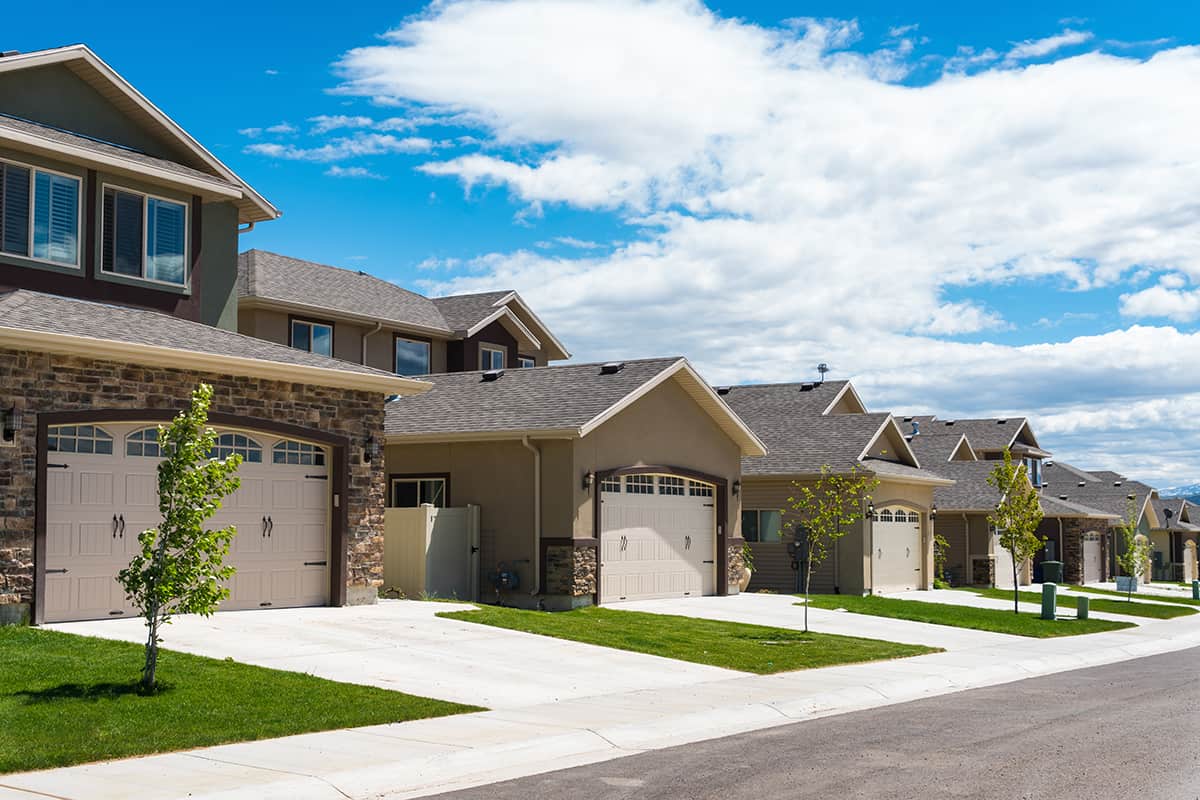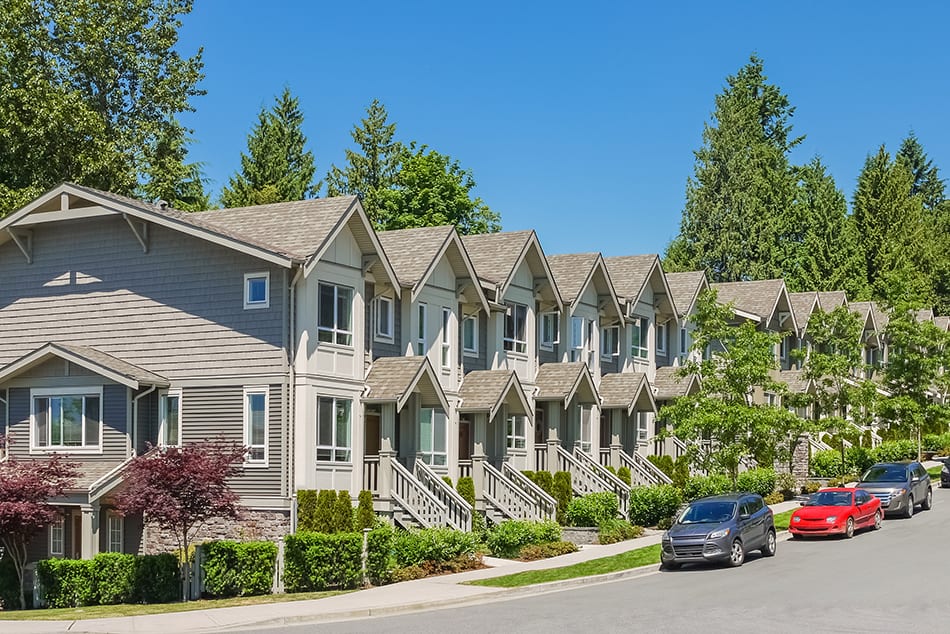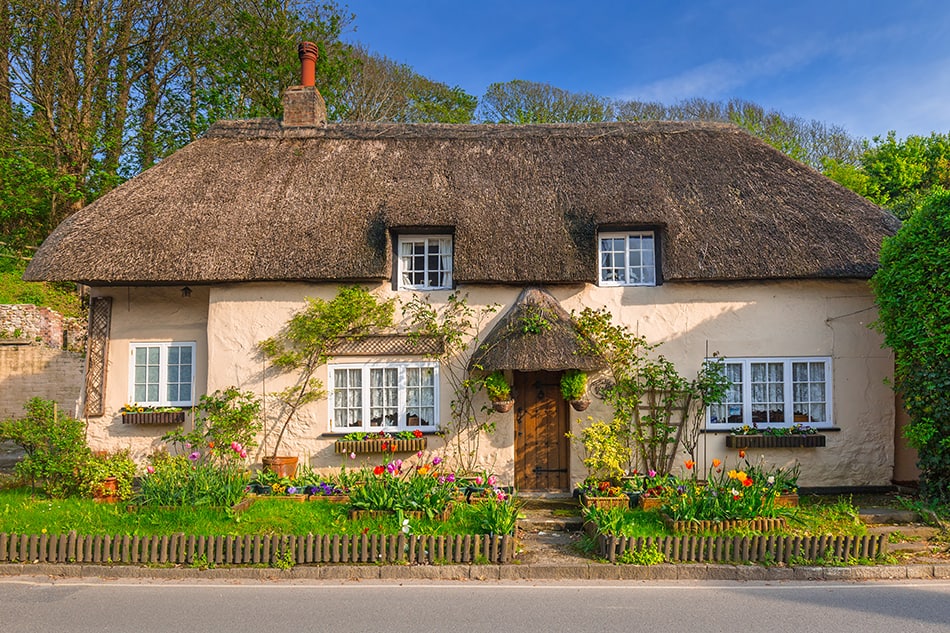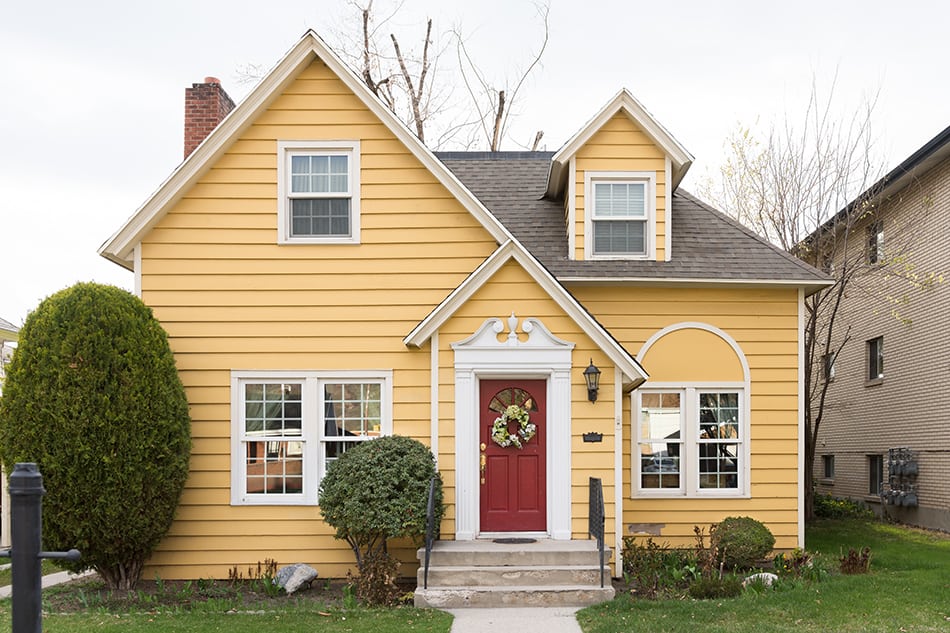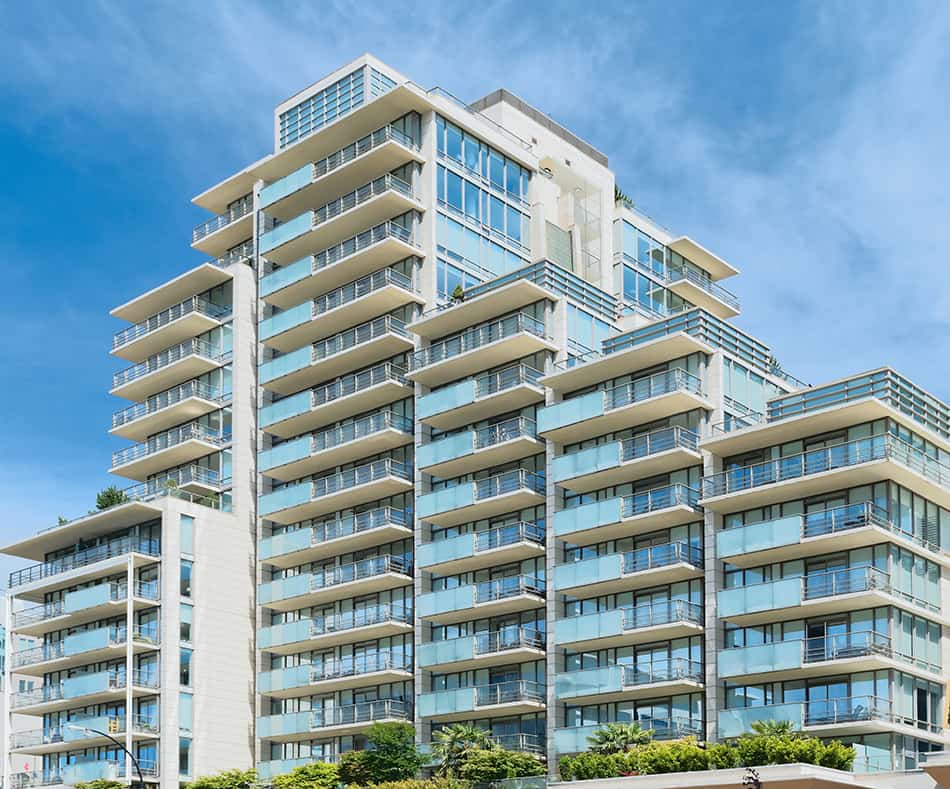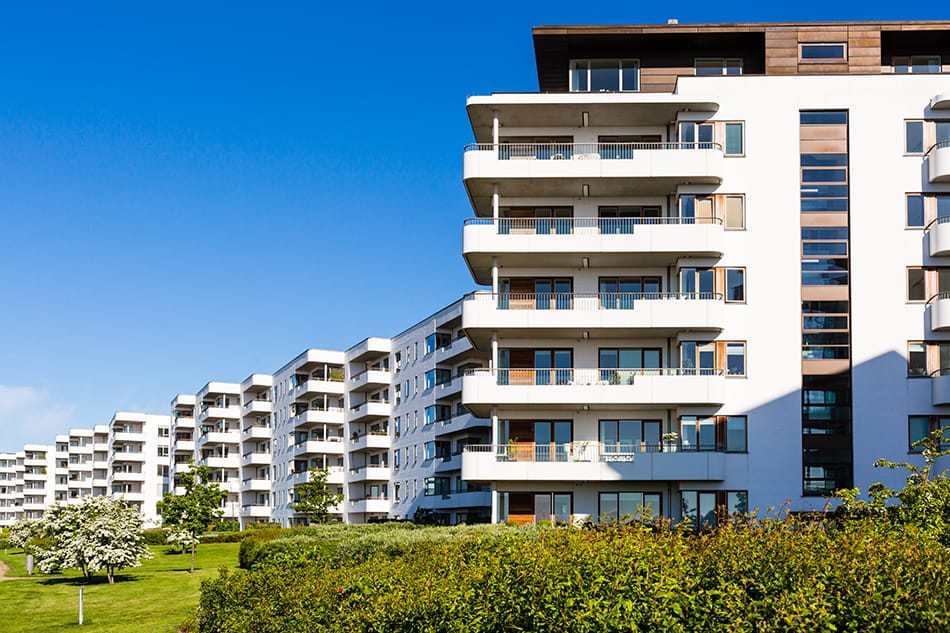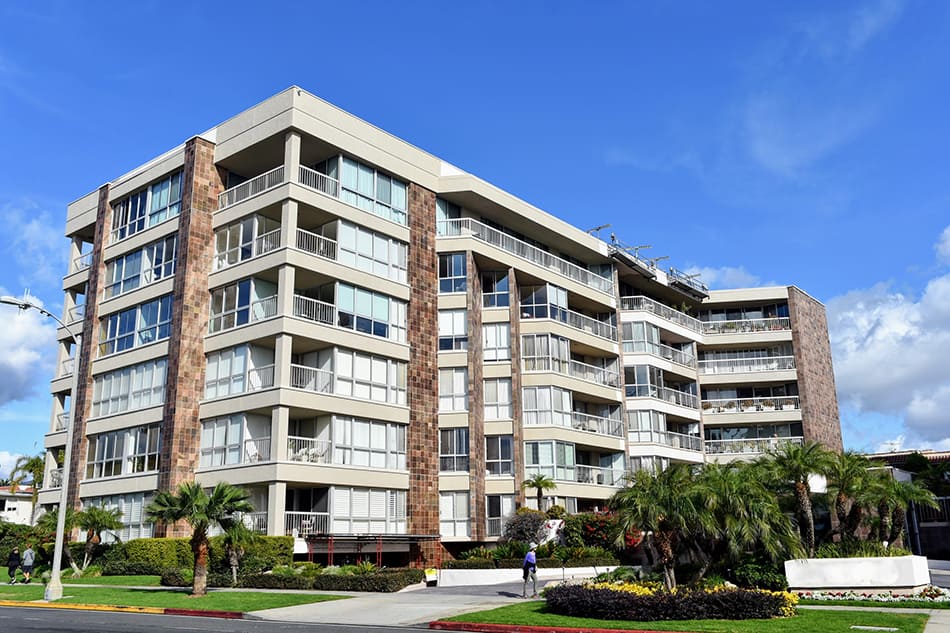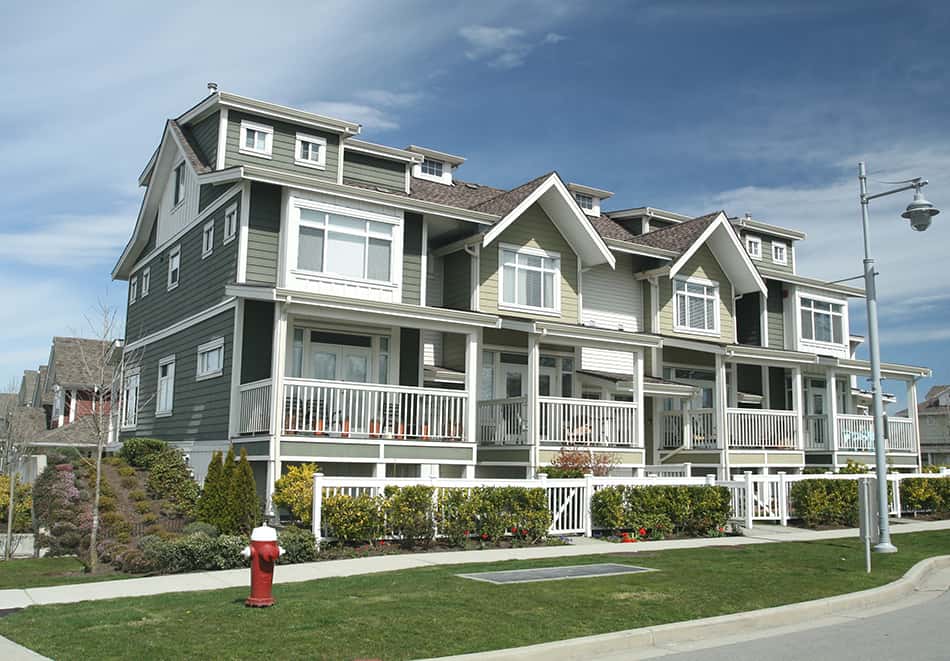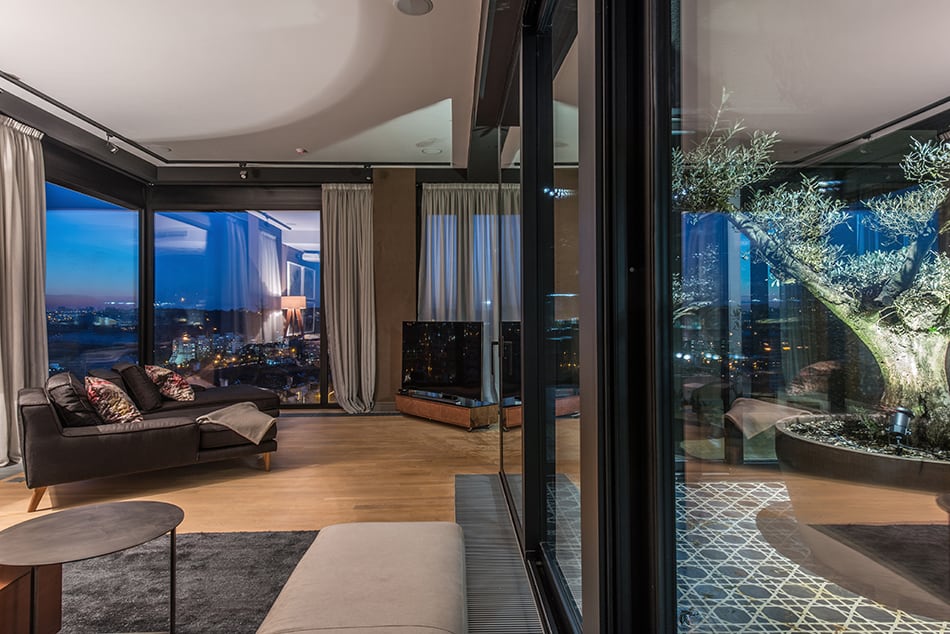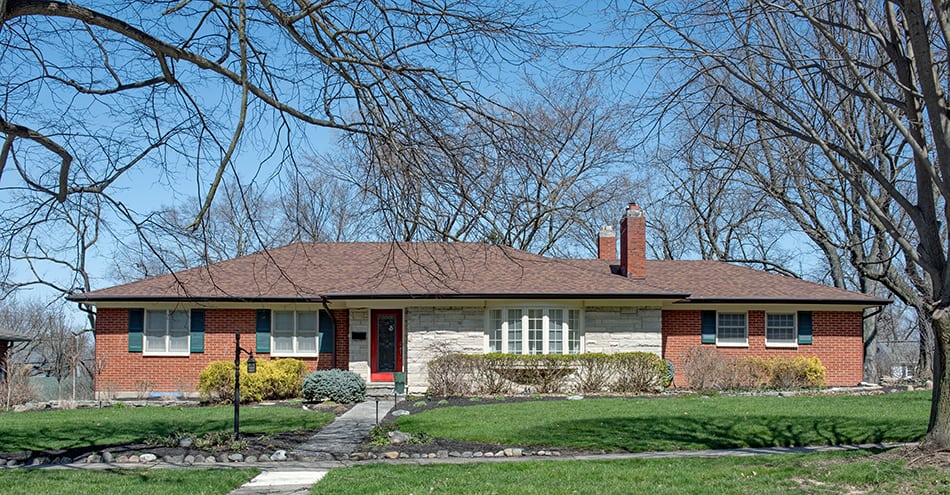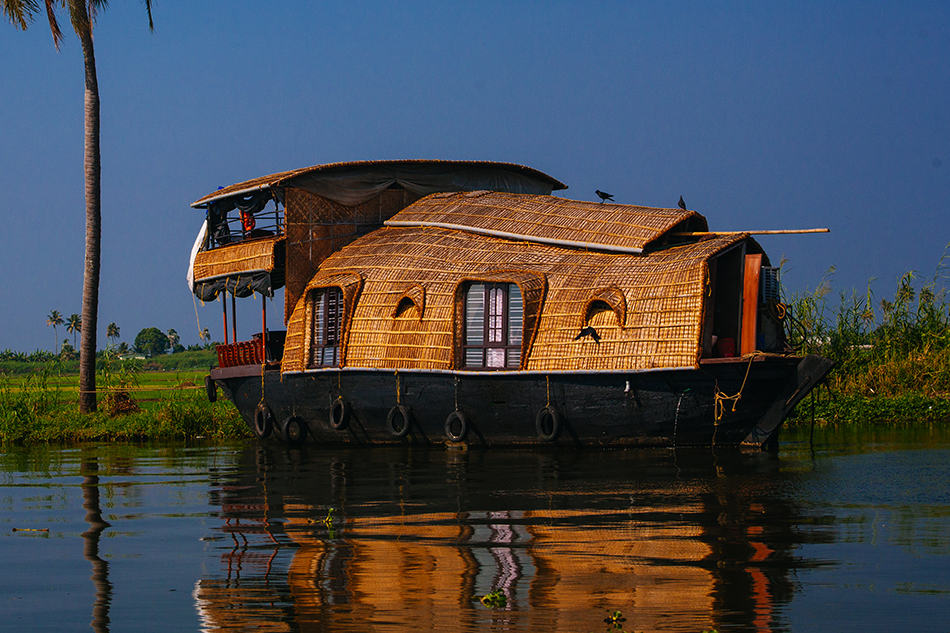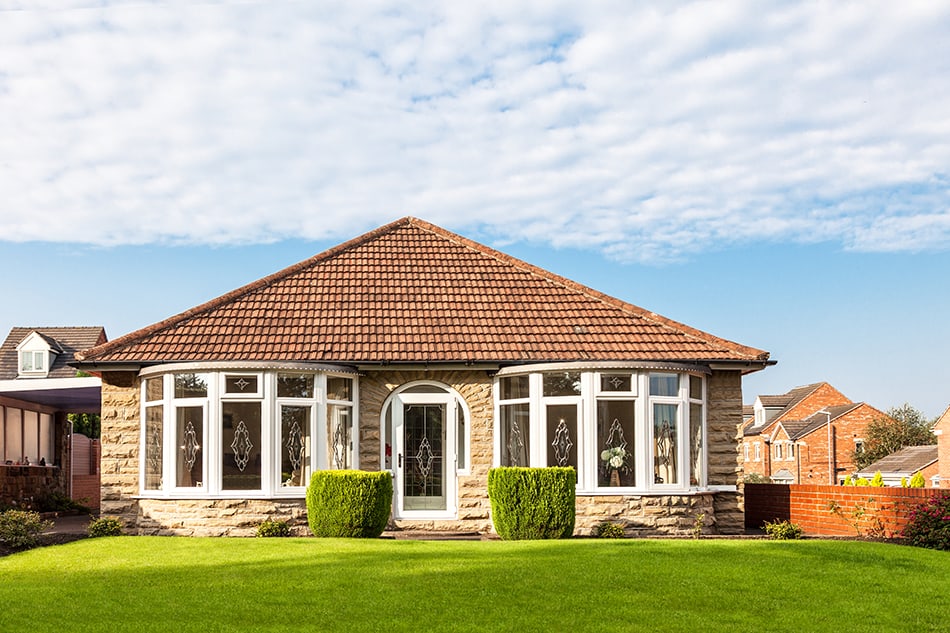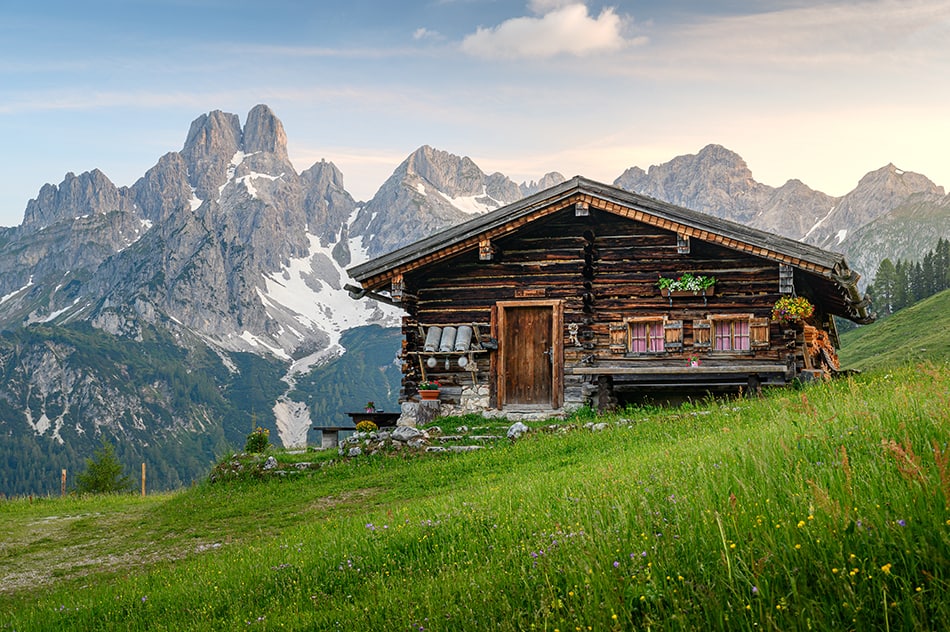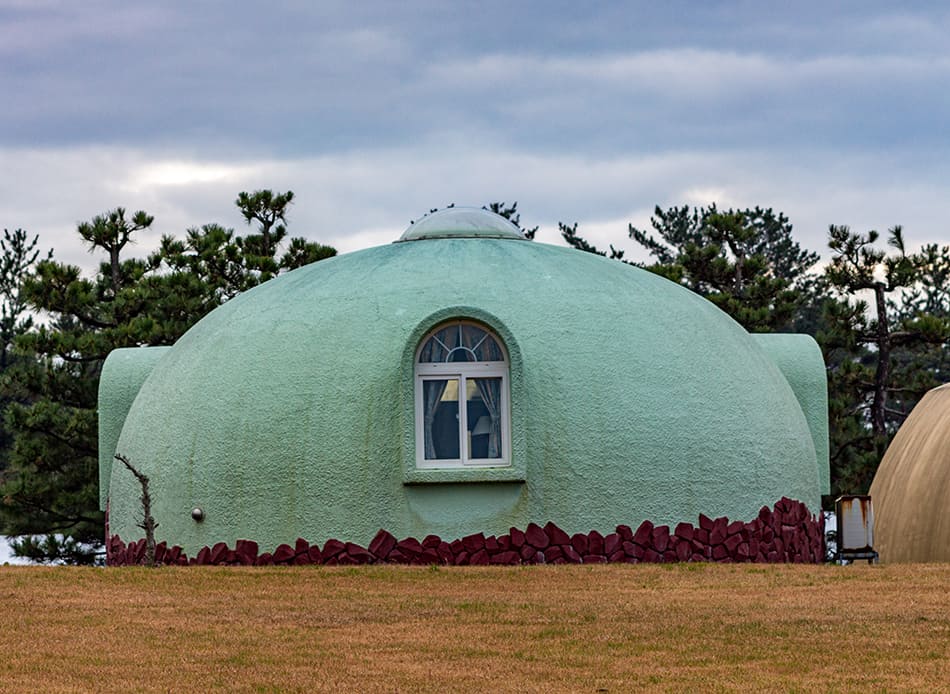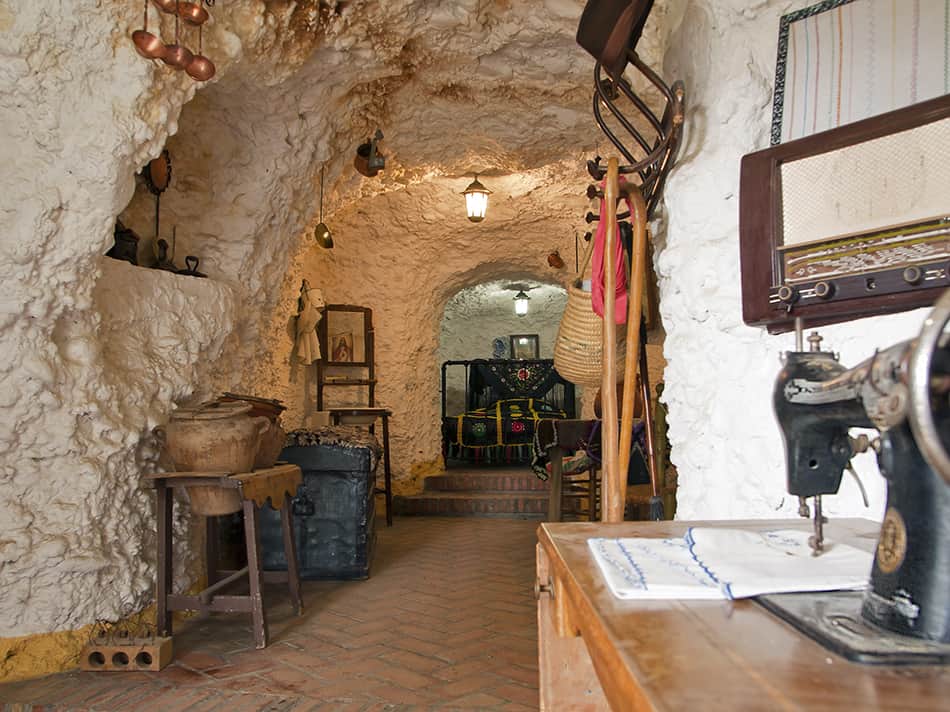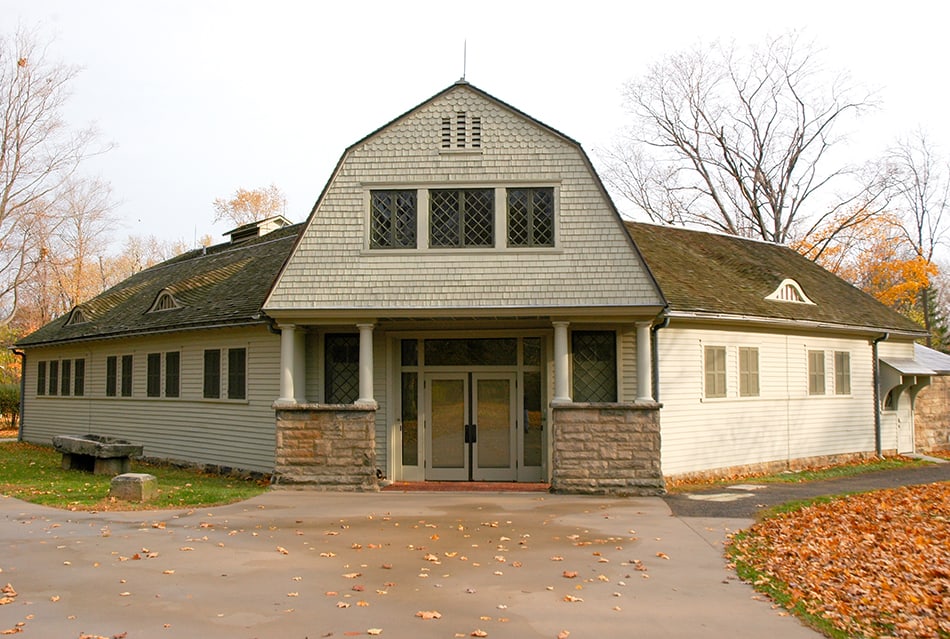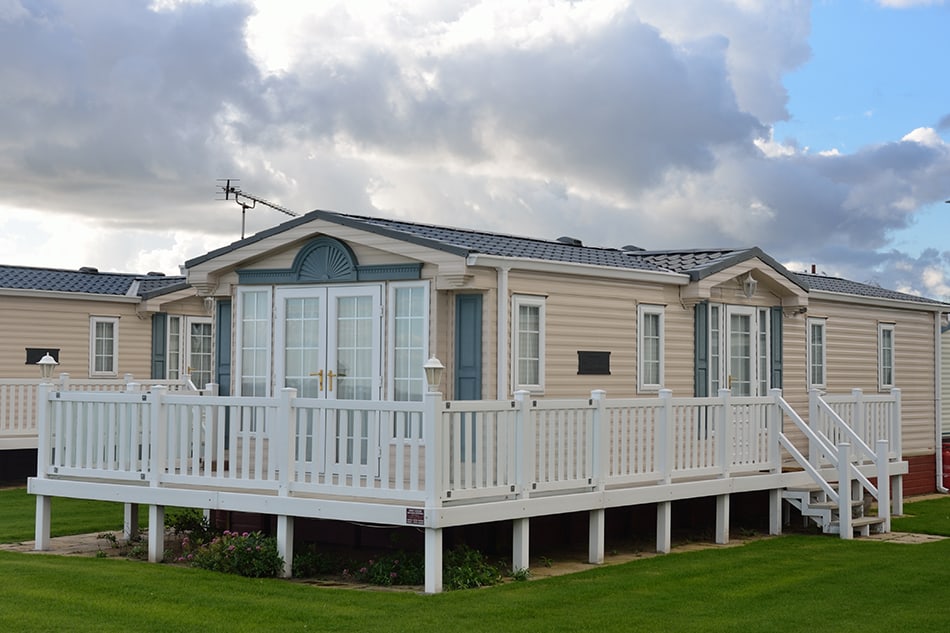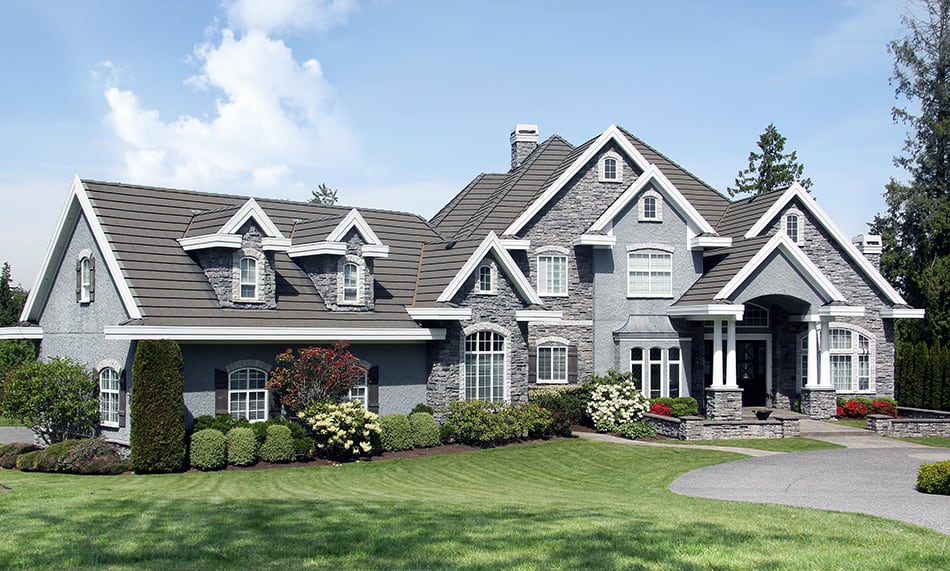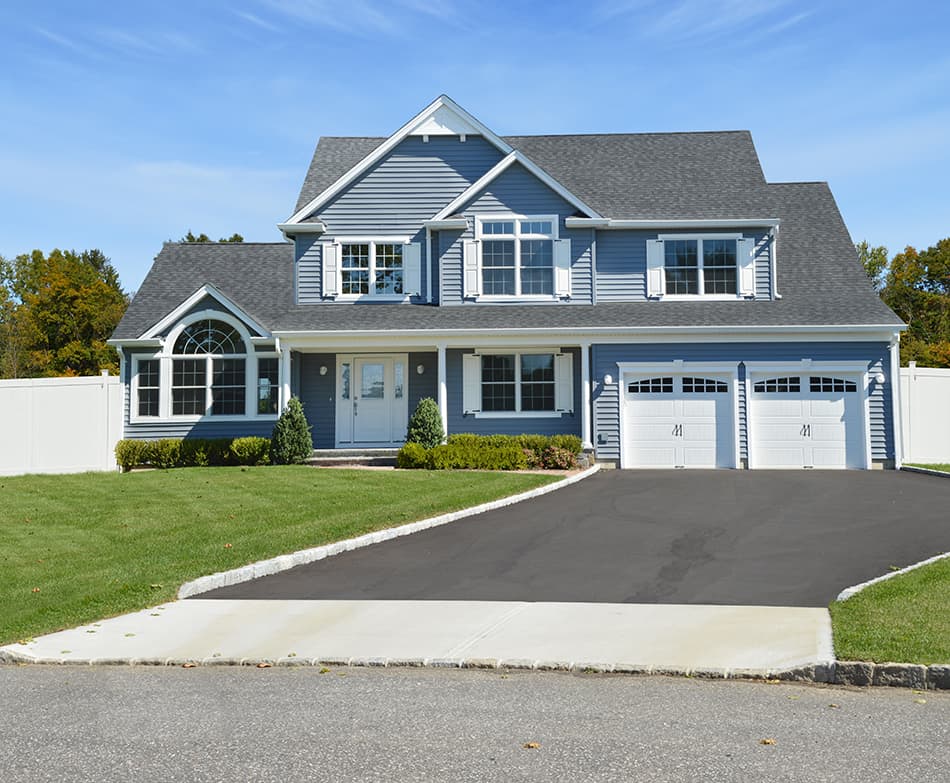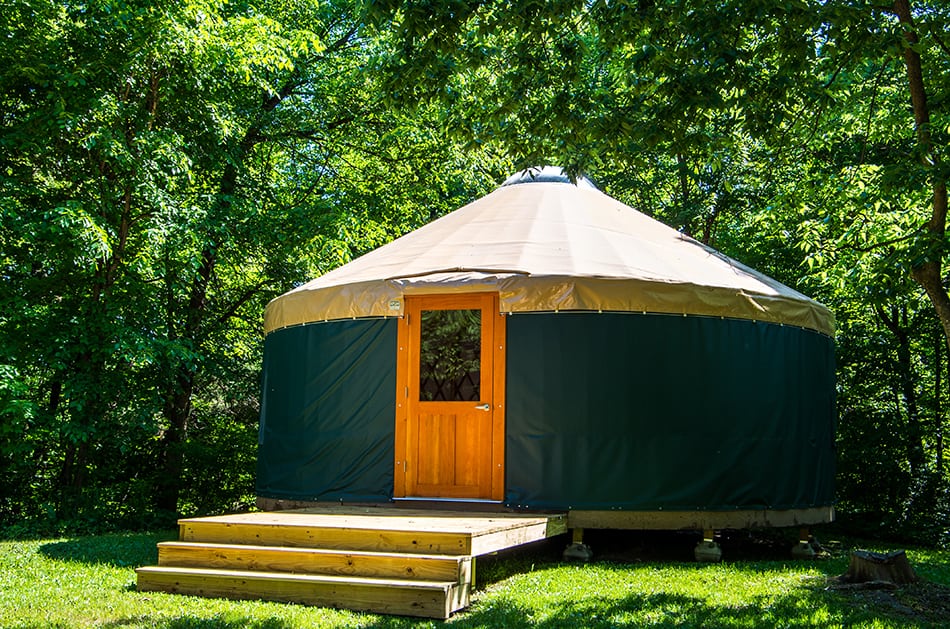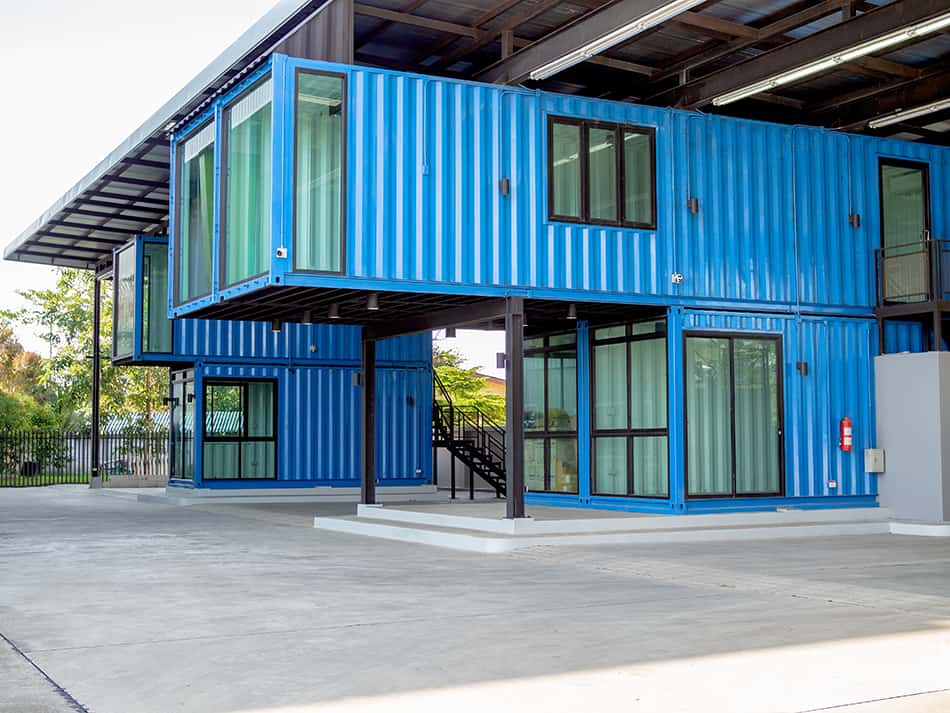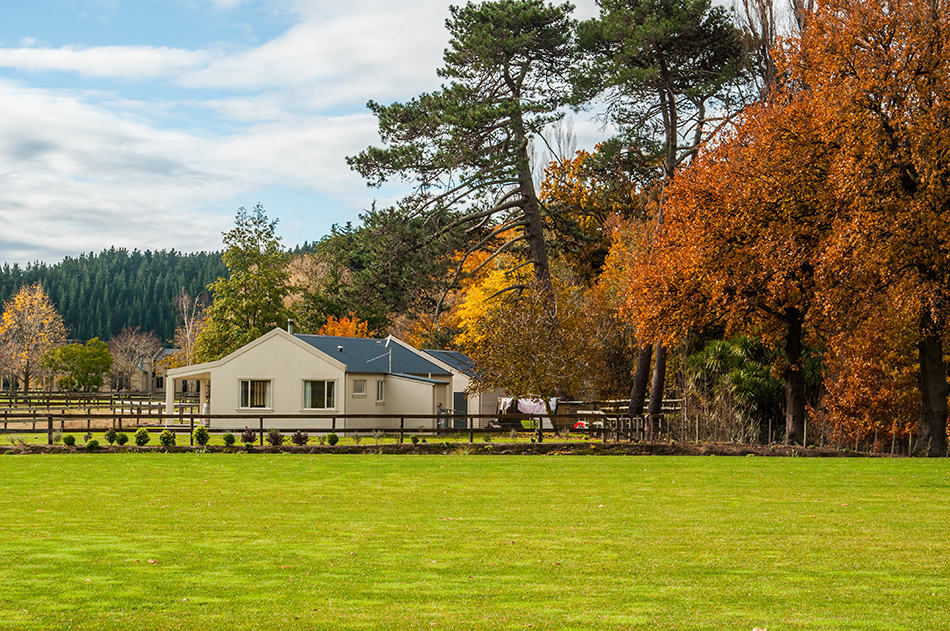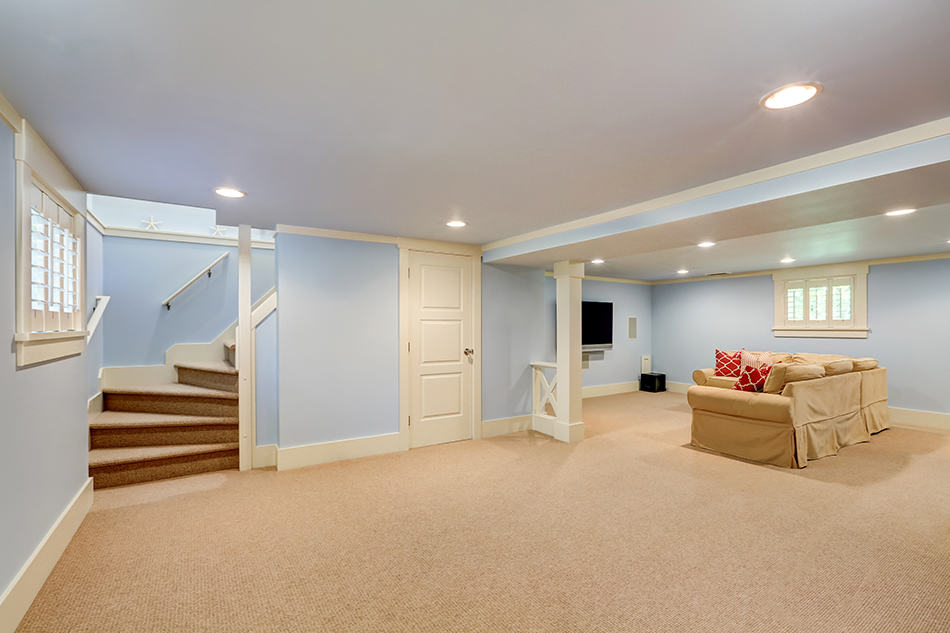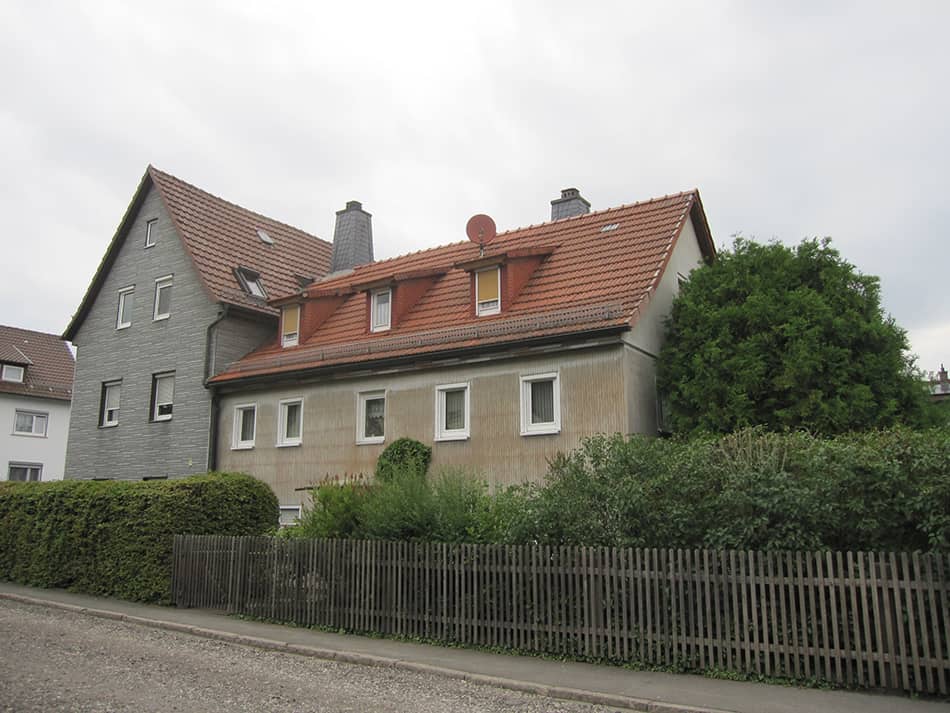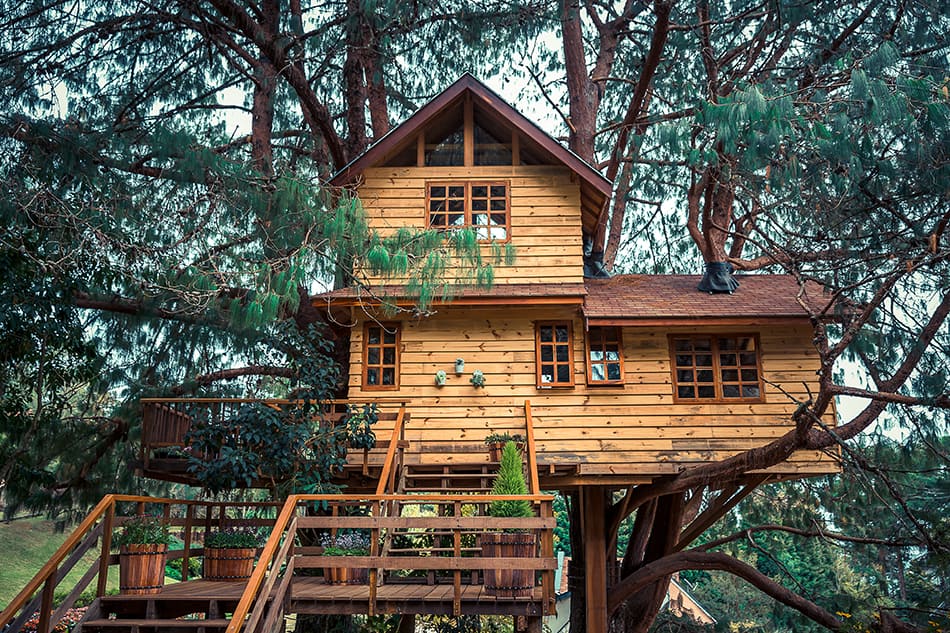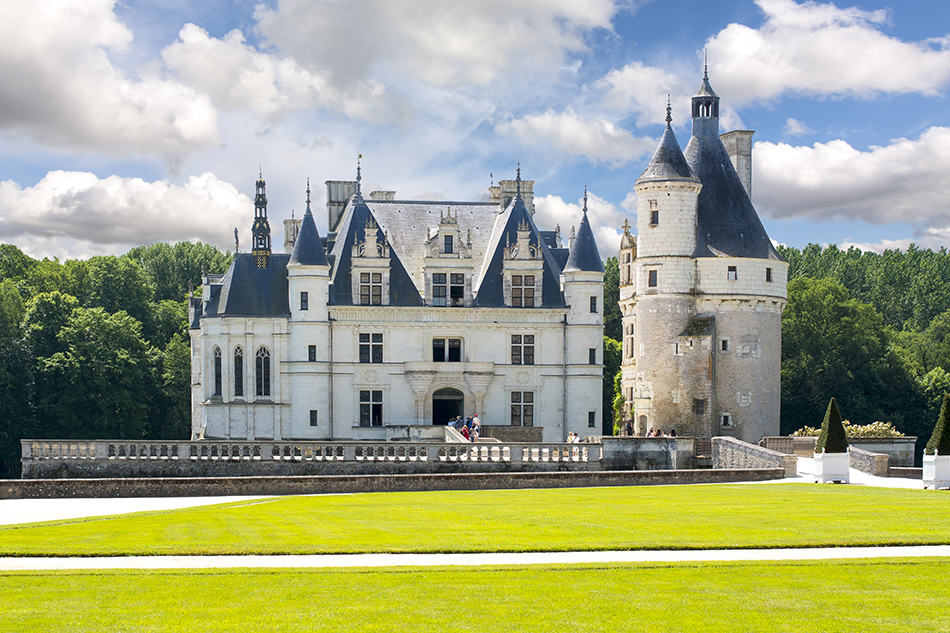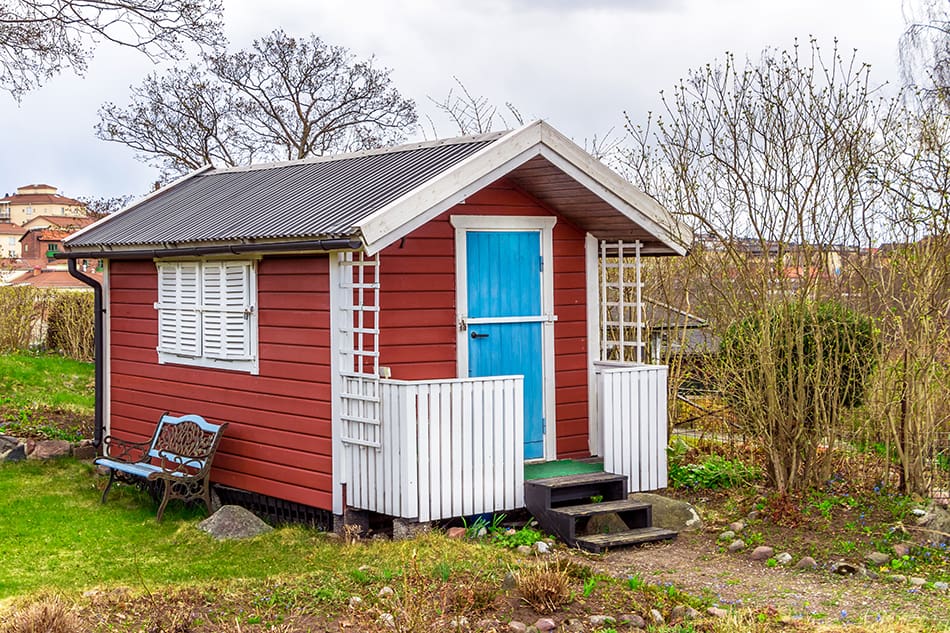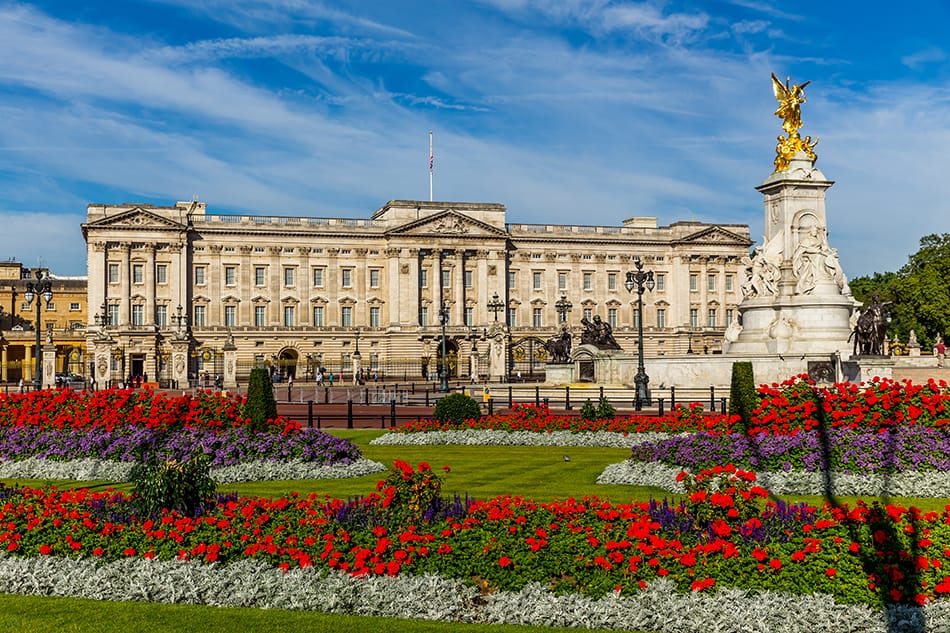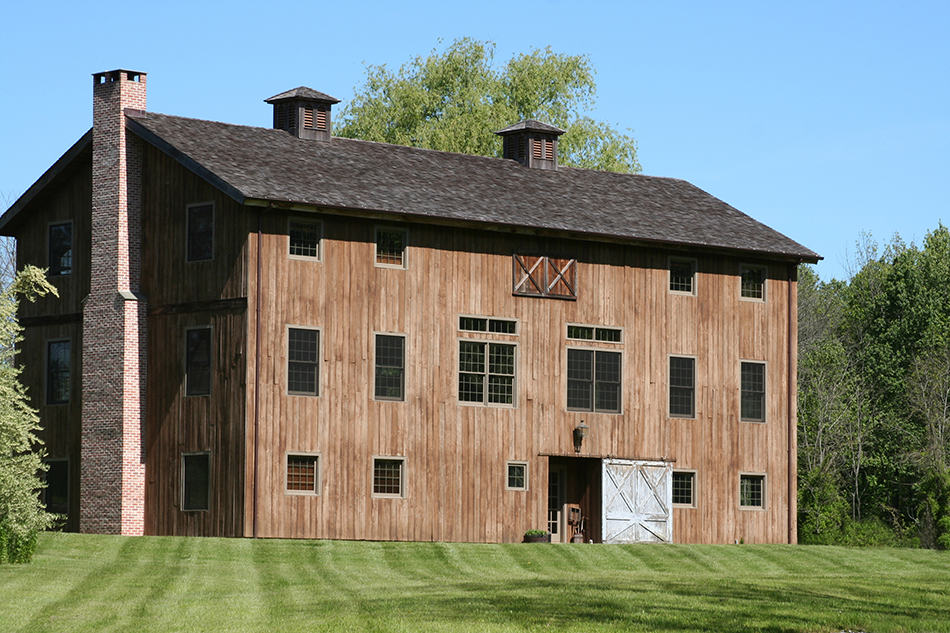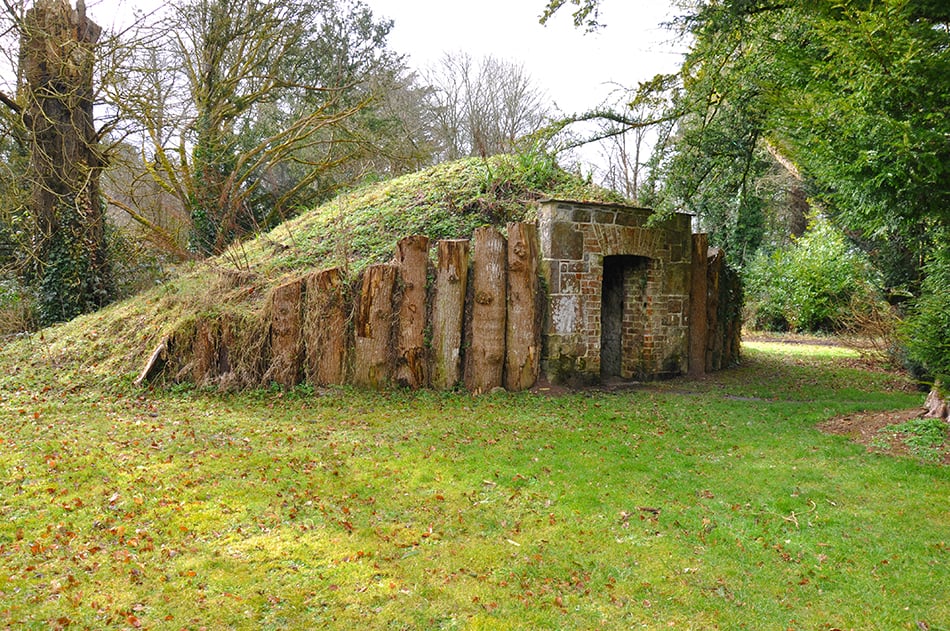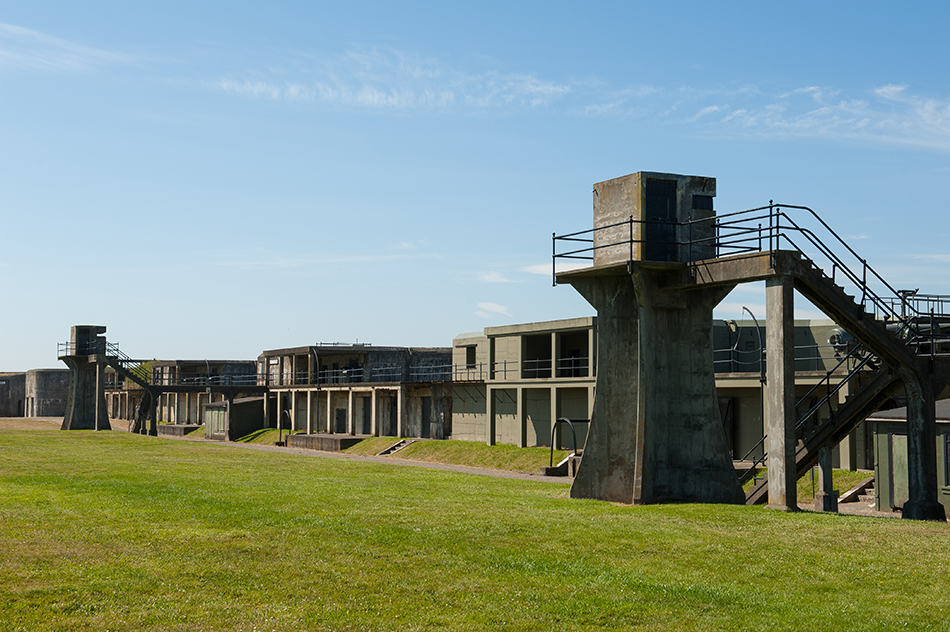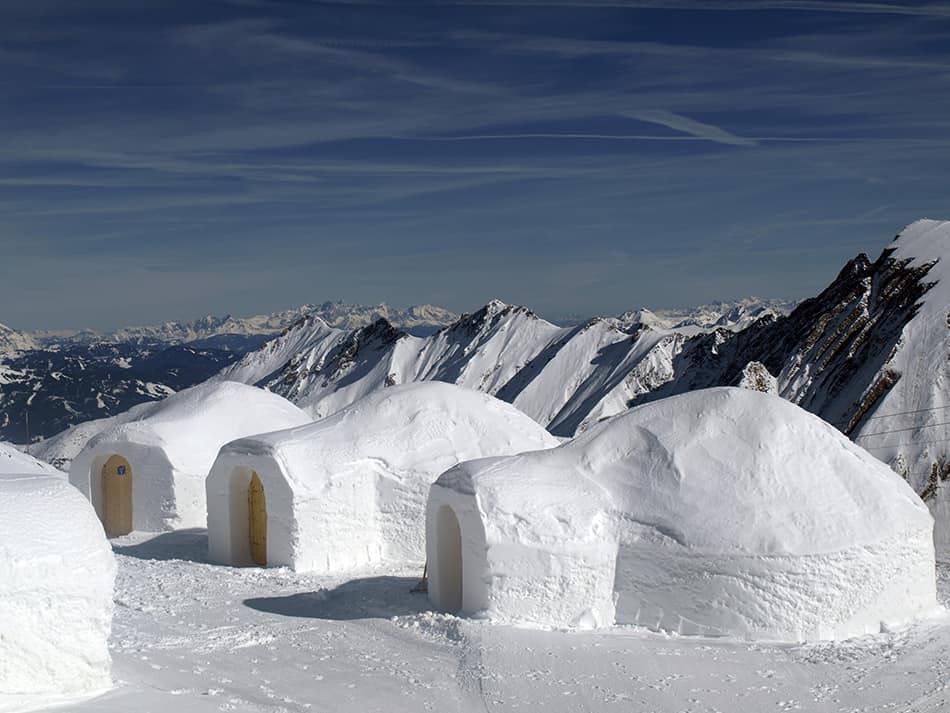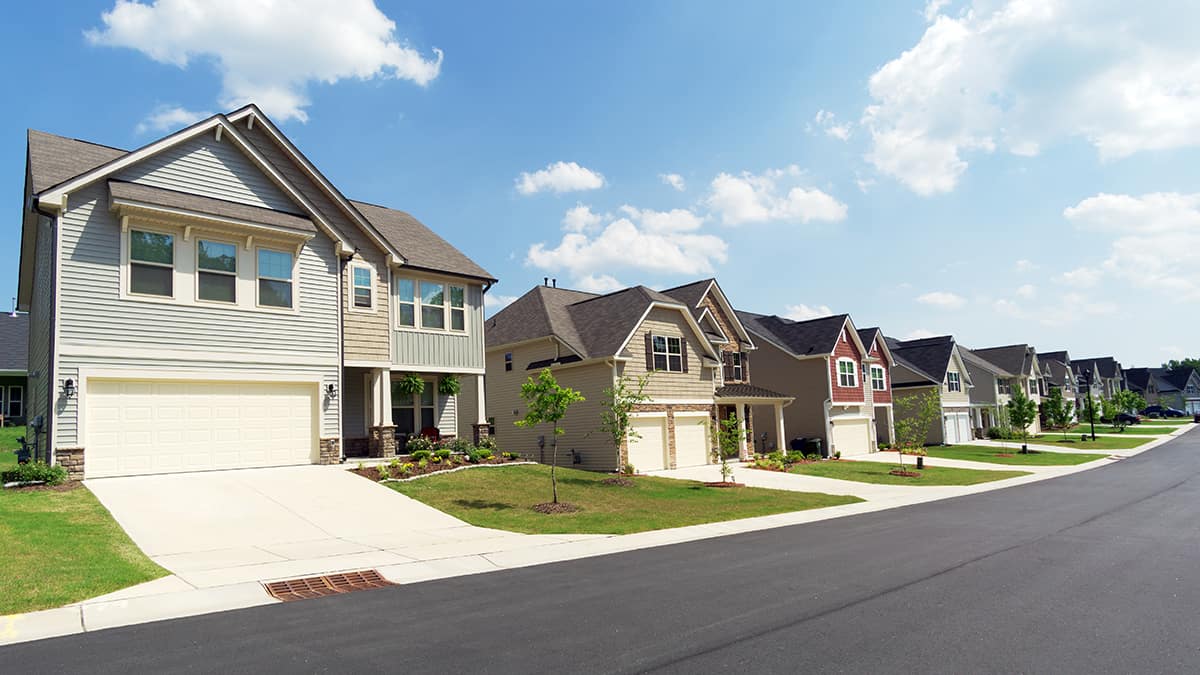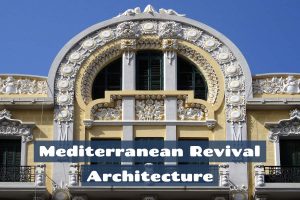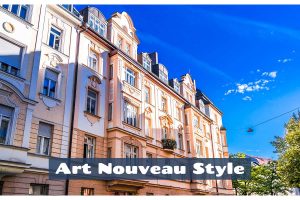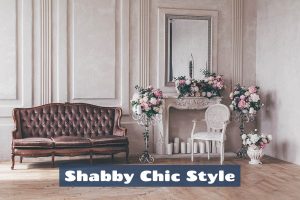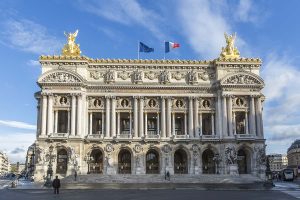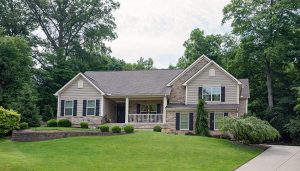Most people are familiar with the most common types of houses, such as townhouses and apartments. But do you know what a floating home is? Or an underground house? Nowadays, there are so many different types of houses available to suit the diverse living styles of everyone in the population.
As society progresses and evolves, so do the living patterns and requirements of earth’s inhabitants, which is what results in a wide array of different types of living accommodations.
The huge range of homes you can now find creates an almost limitless versatility for the homeowner, allowing you to choose a type of house that perfectly suits the needs of you and your family.
While there are countless styles of houses available, here we are focusing on types of houses rather than styles of houses. The type of home refers to the actual structure of the building, its purpose, and sometimes its history. House style, by comparison, would consider the architectural design of the building. Here, we look at the many different types of houses available and what defines them.
1. Townhouse
A townhouse, or townhome, is usually a tall and narrow property that is joined on either side by other townhomes. Townhouses are formed in rows and are at least two stories tall, often three or four. As townhouses are joined to other homes on their left and right sides, they only have windows at the front and back of the property.
Townhouses are so-called because they typically feature heavily in the center of towns and cities, where space comes at a premium, and so builders constructed lots of houses close together; however, many new-build townhouses can now be found in the suburbs.
2. Cottage
A cottage is traditionally a small and cozy detached home with thick walls and a thatched roof, though the term is now most commonly used to describe a vacation home.
Cottages, in the English sense of the word, are typically understated quaint buildings which provide a home away from home for their owners. They are often situated on a lake or in a rural setting. They differ from cabins in that they have more of a comfortable feel to them, with more attention paid to the exterior aesthetic.
Cottages are often painted in muted colors, with window boxes full of flowers and balconies where a swing seat might be found. Though cottages are small in stature, they offer everything you would need to live a comfortable existence. In fact, though the word ‘cottage’ has come to be used to describe any sort of vacation home, many people live in cottages all year round.
3. Single Family Home
A single-family home is the most common type of home in the US. It is typically a fairly large building that is not joined to any other homes. These types of homes are most often seen in suburbia, where space does not come at a premium, so the need to fit lots of houses in one area is not an issue.
Single-family homes are very sought after, and this is the type of American house that the majority of Americans aspire to own. These detached homes come in a large variety of shapes and sizes and usually tend to be quite modern in style.
4. Apartment
An apartment is one building that has been divided up into numerous homes. One person or one business will own the entire apartment building and, therefore, all apartments and each apartment is then leased out to tenants. Apartments can vary enormously in size and style. Some apartment buildings feature additional amenities such as a gym, swimming pool, and laundry room, while others are more basic. Each apartment is generally set over one floor, but this is not always the case.
Apartments may also have car parking facilities available, often underground or on the ground floor beneath the apartments. Apartment buildings can be purpose-built structures, or in some cases, they are inside old historical buildings that have been retrofitted to accommodate a number of apartments.
5. Condominium
A condominium has a lot in common with an apartment, except that condominiums (condos for short) are privately owned. This means that the owner is responsible for the upkeep of everything inside their individual condo and the exterior of their condo, such as a balcony or front door.
However, the building as a whole and the land it sits on is owned and governed by an elected body, such as a housing association. All of the communal areas will have rules as laid out by the governing body, and each owner will pay a set amount of money each month or year, which accumulates in an account run by the elected body. This fund will then be used for the upkeep of communal areas of the building, or for essential maintenance, such as elevator repairs or repainting.
Condos, like apartments, can vary in size and style and are found in both city locations, as well as suburban areas.
6. Co-op
A Co-op is the abbreviated form for the term cooperative. Most Co-ops are similar in appearance and purpose with that of a condominium or apartment.
A cooperative is a housing agreement in which the person or persons living within a Co-op unit are not owners of the actual property. They lease their condominium or apartment from the cooperative. Individuals occupying the units in a Co-op property are considered shareholders in a corporation. The corporation actually owns the entire cooperative or building.
Though shareholders don’t own their condo or apartment, they do, however, own a percentage of the cooperative or building. Actual shares in a cooperative/building will depend on the size of the condo or apartment that individuals occupy.
7. Multi-family
A multi family home or residence is one that contains two or more housing units. It can be a home with a guest house, an apartment or a mother-in-law suite within or attached to a house.
Residential multi-family units can also mean larger buildings such as condominiums, apartments, or similar stand-alone building complexes that hold multiple units. The apartments or units can be either be two or three-story structures or ground-level units next to one another.
8. Penthouse
A penthouse is essentially the top floor of any building which is used as a residence. This might be the top floor of a five-story building or the top floor of a fifty story building; the size of the building makes no difference.
Penthouses will be typically accessed by an elevator, and they are associated with wealth. Penthouses are considered prestigious places to live and might be in modern buildings, or in renovated historic buildings. They often have amazing views with vast expanses of windows to take advantage of their tall position.
9. Ranch House
A ranch house is a single-story home that is designed for comfortable and casual living. These types of homes have western roots, where they were historically found on horse ranches. Ranch houses can usually be found on a sizable parcel of land, with a generous yard, an attached garage, and often other outbuildings.
Ranch houses tend to be clad in wood, and on the interior, they have open living spaces. These types of homes are easy to care for and affordable. They are most commonly found in rural areas, on many acres of land.
10. House Boat
A houseboat, also called a floating residence, is essentially a house that is kept on a body of water. This might be the ocean, a lake, or a river. Houseboats are typically moored to the land and are not used for sailing, although this could be a possibility for some smaller houseboats.
A houseboat will have all the usual elements of a house, such as a bedroom, a kitchen, and a living area; the only difference is that it floats. Due to the nature of houseboats, they do not have yards or garages, though they might have nearby garages on land.
11. Bungalow
A bungalow is a single-story home with a square or rectangular footprint in a simple style. Bungalows are especially popular among the aging population, as the lack of stairs makes them easier to move around in. For this reason, bungalows are a sought-after type of real estate, which may come at a higher price than you might expect.
Bungalows typically have a front porch and a cute and quaint look. They were built in abundance in the US in the early 1900s but are no longer a commonly built type of home.
12. Chalet
Chalets are commonplace in mountainous regions of Europe, which traditionally would house shepherds and goat herders. They have steep roof pitches that overhang the exterior walls of the building; this is to cope with large amounts of snowfall, encouraging snow to fall away from the property and not get stuck on top of the roof, which might cause it to collapse.
Nowadays, chalets are common in ski resorts and are often bought as vacation homes for people who frequently ski. Chalets are built from wood, with lots of wood both internally and externally on the property. The wood helps the properties to blend into the surrounding nature and also gives the houses an authentic Nordic feel.
13. Round House
A round house is a unique type of house that takes on a dome-like structure. These types of houses can be modern-built designs, but in some cultures, they have been used as homes for thousands of years. These types of houses are unusual, not commonly seen in western countries.
14. Cave
A cave can be considered the original ‘house.’ While very few people live in caves today, our ancestors made these caverns within mountains their place of safety and respite.
There are still places around the world where people live in caves; in some cases, they have been renovated to become cozy yet functional homes. Some people are retreating to make their homes in caves as a way of rejecting modern society and getting back to a simpler time.
15. Coach House
A coach house is a small structure that is typically on the same property as the main home. These buildings would have initially housed horses and carriages, but have since been renovated to create a second, smaller house.
Coach houses are often used as guest suites when people have extended families come to stay, or they might rent out the coach house to allow other people to stay there. Coach houses might also be used as a permanent residence for in-laws or for grown children to live in before they make a move to become completely independent from their parents.
16. Mobile Home
Mobile homes, otherwise known as trailers, are called mobile homes because they are built in a factory and then towed to their final destination rather than being built in situ like other homes. However, despite their name, they are not intended to be mobile in the same way that a recreational vehicle or motor home is.
Mobile homes are small; they have to be able to be towed by a truck and fit on a standard-sized road. They are generally inexpensive compared to other types of homes. They can be kept in a mobile home park, amongst many other mobile homes, or in some instances, people buy a mobile home to have installed on their own piece of land for more private but affordable living.
17. Cabin
A cabin, traditionally, is a log-built structure. Cabins have a lot in common with cottages, in that they are both usually vacation homes, and are generally small in size. However, cabins are rural, often situated in the middle of woodland, while cottages can be found pretty much anywhere.
Cabins tend to be more rustic than cottage homes, with a less finished look to them. They are built for function with little interest in aesthetic appeal. Cabins are often used for fishing or hunting trips, as a base for people to sleep and eat but not really spend a huge amount of time in. For this reason, cabins are usually quite basic and minimally furnished.
18. Mansion
A mansion is a very large, detached property, which is usually reserved for the rich and famous. Mansions are expensive, sprawling properties, which are often hidden from view behind tall fences or at the end of a very long private driveway. Mansions can be built from any material but are commonly constructed from brick or stone.
19. McMansion
Though the term McMansion may seem like an extension of the word mansion, it actually means a large home that is poorly designed, built and put together with low-grade materials and limited skill. Interior square footage in a McMansion usually runs from 3,000 to 5,000 square feet, and its actual architectural aspects are lacking except for a few design elements that are included in a gaudy or flamboyant way.
Similar to track homes, McMansions can exude a mass-produced or ready-made look, though they are not built with the uniformity or efficiency typically associated with tract housing
There are unique characteristics with a McMansion that exude a mass-produced or ready-made look that is not as customized and finished as a true mansion would be. This type of home is often built in large suburban areas by one developer.
20. Yurt
Yurts have a round footprint and can be easily erected and taken down. Their walls and roofs are made from waterproof fabric, and some have polythene ‘windows’ while others do not. Yurts are traditional homes for nomadic people in Mongolia, but in the last decade or so they have become popular in western culture.
They are most commonly used as vacation homes or can be found on ‘glamping’ sites, which is a luxurious method of camping. Some people in the US live in yurts all year round, but this is still a very uncommon type of house.
21. Converted Shipping Container
Shipping containers are becoming increasingly popular for use as homes. These disused containers are essentially being ‘recycled’ and put to good use as houses. As such, they have a flat roof and are metal-constructed, so need to soundproof and weather-proof.
There are many modern construction companies that are converting old shipping containers into contemporary homes – they supply them as a prefabricated or manufactured home, while some people take on the challenge themselves to create a low-cost, functional property. Single shipping containers can be used to make small houses, while some people join several shipping containers together to create additional space.
22. Farm House
A farmhouse is a residence based on a farm, which may be a working farm or a disused farm. These houses are typically large structures surrounded by land, in rural locations.
They are detached structures and would have been the residence of farm owners and farmworkers throughout history. Nowadays, some farmhouses are occupied by people who have no association with farms but enjoy a peaceful, rural lifestyle.
23. Basement Suite
A basement suite is when the basement portion of a house has been converted or purpose-built, to be used as a separate residence. A basement suite will be a home in its own right, with its own private entrance, its own kitchen, and bedrooms.
Often, especially in places where property prices are high, different generations of families come together and pool their money to buy a property, then converting the basement into a suite for one part of the family to live. In most instances, it is a set of in-laws that will occupy the basement suite, which is why these are commonly also known as ‘in-law suites.’ The benefit of this set up for families is that elderly people can maintain their independence while also having family on hand to help if they need it.
It also has obvious financial benefits for both parts of the family. Another instance where basement suites are used might be for teenagers or children of college age, who want their own privacy and some level of independence but are not yet able to leave the family home. Some families even rent out their basement suites to other families as a means of extra income.
24. Annexe
An annex has a lot in common with a basement suite because they are typically used for the same purpose; to house in-laws, grown children, or to rent out for additional income. The difference is that an annex is not contained in the basement of a home, but can be attached to the side of a home, or be a completely separate entity on the same parcel of land, often at the end of the garden.
An annex, like a basement suite, will have its own private entrance, and everything a home needs to be comfortable and independent from the main house. An annex will typically be a one-story structure, but this is not always the case. An annex might have the same set-up as a studio apartment, with open plan living, or it might have a separate bedroom area.
25. TreeHouse
When you think of a treehouse, you probably visualize a rudimentary structure built from old panels of wood where you held secret meetings as a child. Treehouses are traditionally playhouses for children, built on a platform in a tree, and accessed by a rope ladder.
However, some people have taken the humble treehouse to the extreme and created residential abodes in the canopy of trees. These treehouses are like elevated log cabins, with all the amenities a home could need, situated high up amongst the branches of trees. Treehouses that are equipped with heating systems may be suitable for year-round use, though most are used as vacation homes.
26. Castle
Castles are historical buildings that were built to house and defend important members of society. They have thick walls and small windows, often surrounded by protective structures such as forts. They were designed to offer maximum protection to potentially vulnerable people who might find themselves the subject of an attack or invasion, which explains their extremely solid and impenetrable construction.
Castles nowadays are, in some cases, still inhabited by descended family members of the original owners, or in some instances, they are opened up to visitors for educational and leisure purposes.
27. Chateau
A chateau is considered a large and luxurious manor house or country house that was originally designed for the lord of the manor, nobility, and the elite of France. The word is derived from the French, chateau, which means castle or a more private palace.
A chateau or chateaux (plural form) are found in various regions of France and other areas of Europe where French was spoken. Many chateaux were given names from the wines produced in the regions. A chateau today is likely to have been restored and is a French historical property that may be converted to bed and breakfast establishments for tourists around the world to enjoy.
28. Tiny Home
Tiny homes are residential properties that are between 100 square feet and 400 square feet in size. The last decade has seen a huge increase in the number of people wanting to live in a tiny home in an attempt to live more affordably and sustainably. There are many styles of tiny homes, including caravans and mobile homes, to more imaginative solutions such as converted buses or huts.
Tiny homes are very cleverly set out, maximizing space with inventive pieces of furniture and innovative floor plans. They work well for people who are downsizing or want to take on a more minimalist lifestyle, ridding themselves of unnecessary belongings.
29. Palace
A palace is built as a home for members of royal families. Many palaces are historical in nature, such as Buckingham Palace, and in many cases, are still the residence of reigning royalty.
Palaces, of course, are palatial. They are huge in size with an imposing and impressive stature, built of strong and long-lasting materials such as stone or brick. Palaces tend to have a symmetrical design to them, though this is not essential.
30. Converted Barn/Barndominium
Old barns that were previously used to house farm machinery or farm animals are popularly being converted into places of residence. You usually hear the term “Barndominium” The definition of a barndominium is a play on words, which means barn and condominium. Originally the name referred to a barn that was renovated to make it a true living space.
Today, a barndominium usually means a metal or steel structure that may have the outward structural aspects or design of a barn. It’s actually a very spacious and efficient dwelling with all the functional aspects of a regular home, which can be enhanced through the latest in various architectural aspects and interior and exterior designs.
Barn conversions are very sought after. A barn dominium can contain walls, room divisions, energy-efficient windows and doors, flooring, cabinetry, appliances, as well as the necessary inner workings of a regular home through insulation, plumbing, electricity, natural gas, propane, heat and air, solar capability and other essentials.
31. Underground House
An underground house, also known as a bunker, is a home that has been developed underneath the surface of the ground. Most underground houses are built into the side of hills so that one side of the home is open to the outside world, letting in light and making a convenient entry point.
While bunkers are a safe space usually designed and built for use during wartime, underground houses can be permanent places of residence.
32. Fort
A fort is a rectangular and enclosed military structure (fortification) that’s designed for the defense and housing of soldiers and other personnel. Original forts were built of timber and then stone. Usually, the structure is surrounded by a high wall or fence with a large, fortified entrance area.
There may be a ditch, rampart, and parapet that are also part of a fort’s structure. Within a fort compound, there are other buildings that serve those living within it, such as barracks, command centers, medical stations, supply stores, mess halls, artillery, munitions supplies, and quarters for other residents.
33. Igloo
An igloo, or snow house, is a dome-shaped shelter or hut made from blocks of snow stacked on top of one another. The original meaning of the word iglu, meaning house, comes from the indigenous peoples of the Arctic region, the Inuits.
They can use igloos as temporary shelters or more permanent structures in extremely cold climates. Any heat produced within an igloo remains within the structure as snow acts as an insulator.
The coldest air within the igloo flows in a downward direction from the terraced structure of the igloo and goes to the bottom portion of the hut, which allows the upper portions to remain warm. It generates heat through human body heat, oil lamps, and small fires for cooking. A small hole at the top of the igloo allows for the release of any smoke that builds up within the igloo. Also, the dome shape of the igloo allows for the effective use of any energy generated within an igloo.
What Are the Most Popular Types of Houses?
The most popular types of houses across the US differ depending on location. Broadly speaking, the most popular type of house across the vast majority of the US is the single-family home, but as you get into more heavily populated cities, this isn’t always the case.
Here we look at the most popular type of house according to area.
Detroit
Detroit, Michigan, is home to 639,111 residents. Over 60% of houses in this city are detached single-family units, while over 10% of homes are apartments in buildings with over 20 units.
Jacksonville
Jacksonville is the most highly populated city in Florida, with residents totaling 902,488. A little over 60% of houses in this city are detached single-family units, while around 5% of homes are mobile properties such as boats or RVs.
Oklahoma City
Oklahoma City is Oklahoma’s capital and the largest city in the state. It has the highest proportion of detached single-family units in the whole of the United States, with almost 70% of homes in the city being this type of house. The second most popular type of house in Oklahoma City is apartments in smaller buildings with between 5 to 9 units.
New York City
Unsurprisingly, housing in New York City in NY state predominantly comprises apartments. Almost 50% of houses are apartments in large apartment buildings with more than 20 units.
Philadelphia
The townhouse is the most popular type of house in Philadelphia, MA. Single-attached homes, such as townhouses, account for around 60% of Philadelphia’s residential properties.
Seattle
Seattle, in Washington State, has a varied mix of housing types. Just over 40% of the houses in Seattle are detached single-family homes, while around 30% are apartments in large apartment buildings with more than 20 units.
Los Angeles
Los Angeles, in California, comprises just under 40% of detached single-family homes. Apartments in large apartment buildings with more than 20 units account for around 30% of houses in Los Angeles.
Roughly 10% of properties in this city are apartments in smaller apartment blocks with 5 to 9 units in each building, and a further 10% of houses are apartments in medium-sized buildings with between 10 and 19 units in each building.
Types of Houses Infographic
Here is an infographic that sums up the main types of houses around the world. Enjoy reading this article? Please pin, tweet, and share it with your friends.

